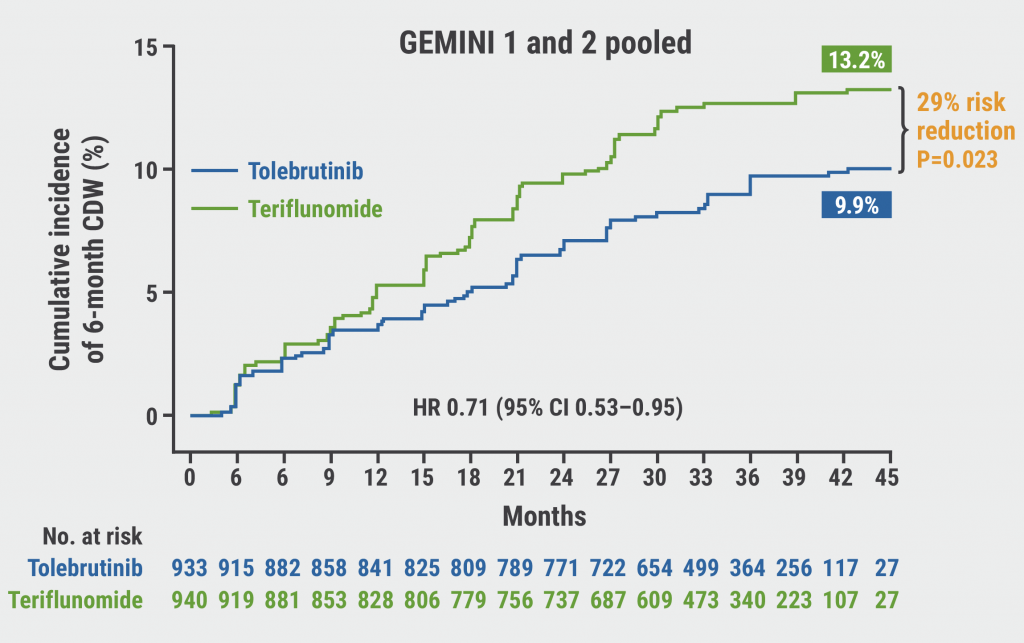"Our study shows for the first time that the risk of persistent disability in pediatric onset multiple sclerosis (POMS) has been lowered over time, probably thanks to the improvement in disease management (i.e. availability of new powerful drugs and evidence-based treatment strategies)," Dr. Damiano Baroncini of the MS Center at Gallarate Hospital, in Italy, told Reuters Health by email.
"We are really changing the prognosis of our young patients, and this improvement will continue due to the availability in the near future of more drugs approved for MS before 18 years of age," said Dr. Baroncini.
The availability of new disease-modifying therapies (DMTs) and changes of therapeutic paradigms have led to a general improvement of MS prognosis in adults. But until now it's been unclear whether this is the case in POMS, whose early management is more challenging, Dr. Baroncini and colleagues note in JAMA Neurology.
To investigate, they evaluated time to reach disability milestones by period of MS diagnosis (before 1993, 1993-1999, 2000-2006, and 2007-2013) in nearly 3,200 patients with POMS. The mean age at MS onset was 15.2 years, mean time to diagnosis was 3.2 years and mean follow-up time was 21.8 years. Women made up 69% of the cohort.
The median times to reach disability milestones of Expanded Disability Status Scale (EDSS) score 4.0 and 6.0 were 31.7 years and 40.5 years, respectively.
The cumulative risk of reaching these disability milestones gradually decreased over time, both for EDSS score of 4.0 (with hazard ratios of 0.70 in 1993-1999, 0.48 in 2000-2006 and 0.44 in 2007-2013) and 6.0 (with hazard ratios of 0.72, 0.44 and 0.30, respectively).
"In POMS, the risk of persistent disability has been reduced by 50% to 70% within the past few decades, probably owing to improvement in therapeutic and managing standards," the researchers write in their article.
"In later diagnosis epochs, a greater number of patients with POMS were treated with DMTs, especially high-potency drugs, that were given earlier and for a longer period," they note.
"In the coming years, an increase of approved DMTs before age 18 years and upgrades in drug safety may lead to a further improvement of prognosis in this population," they conclude.
The study had no specific funding. Dr. Baroncini has disclosed financial relationships with Sanofi Genzyme, Teva, Merck, Biogen, Roche, Almirall, and Novartis.
SOURCE: https://bit.ly/3nGpove JAMA Neurology, online May 3, 2021.
By Megan Brooks
Posted on
Previous Article
« Breast-cancer survivorship rarely easy, even with early-stage, low-risk disease Next Article
Hemostatic patch promises to improve cardiac cath-lab efficiency »
« Breast-cancer survivorship rarely easy, even with early-stage, low-risk disease Next Article
Hemostatic patch promises to improve cardiac cath-lab efficiency »
Related Articles
November 18, 2024
CAR T-cell therapy in MS: in its infancy but highly anticipated

November 18, 2024
Tolebrutinib slows disability worsening in relapsing MS
© 2024 Medicom Medical Publishers. All rights reserved. Terms and Conditions | Privacy Policy
HEAD OFFICE
Laarderhoogtweg 25
1101 EB Amsterdam
The Netherlands
T: +31 85 4012 560
E: publishers@medicom-publishers.com

